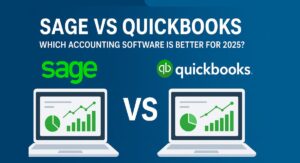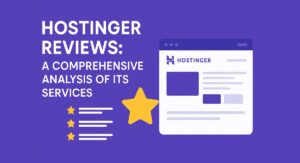In the world of accounting software, Quickbooks and Xero stand out as top contenders. Both offer robust features tailored for small to medium businesses.
Deciding which software to choose can be a tough call for business owners and accountants alike. Each has its unique strengths and the choice often boils down to individual needs and preferences. When it comes to managing finances, the right tool makes all the difference.
Quickbooks and Xero are powerful allies in the financial landscape, but they don’t serve the same master in the same way. This comparison aims to shed light on their differences and similarities. It will guide you through the decision-making process. Think of it as a helping hand as you navigate through the sea of features, pricing, user interface, and integration options that each software provides. This isn’t just about choosing a program—it’s about finding a financial partner that aligns with your business goals. Let this comparison be your compass.
Introduction To Quickbooks And Xero
Choosing the right accounting software is crucial for business success. QuickBooks and Xero are leading solutions. They help manage finances efficiently. Users appreciate their features and user-friendly interfaces. This comparison sheds light on their offerings.
The Rise Of Digital Accounting
Business operations have transformed with digital accounting. It simplifies financial management. Real-time data access and automated features save time. Both QuickBooks and Xero are at the forefront of this shift.
Key Players In The Market
QuickBooks and Xero are popular choices among small to medium businesses. They offer cloud-based platforms. This allows secure access from anywhere. Their tools cater to various accounting needs. We’ll explore their strengths and differences.
Core Features Of Quickbooks
Let’s dive into the Core Features of QuickBooks. QuickBooks stands out in managing money. It helps businesses keep track of their finances. This part covers how QuickBooks makes invoicing, tracking expenses, and processing payroll easy.
Invoicing And Payments
QuickBooks simplifies sending invoices. It allows for quick payment too. Users can:
- Create custom invoices.
- Send invoices via email.
- Get paid online.
This feature saves time. It makes getting paid faster.
Expense Tracking
Keeping an eye on spending is easy with QuickBooks. Users can:
- Connect bank and credit card accounts.
- Automatically sort expenses into categories.
- Track expenses on the go.
This helps businesses understand where money goes. It aids in budget making.
Payroll Processing
QuickBooks also offers payroll services. Businesses can:
- Pay employees and file taxes.
- Automate payroll runs.
- Offer direct deposit.
This feature simplifies paying teams. It ensures accuracy in tax filing.
Core Features Of Xero
Choosing the right accounting software is crucial for managing finances. Xero is a robust platform with impressive features. Let’s explore the core features of Xero that make it stand out.
Automated Transaction Feeds
Xero simplifies bank reconciliation with automated transaction feeds. It connects directly to bank accounts, pulling in transactions. This eliminates manual data entry and reduces errors.
Data Capture With Hubdoc
With Xero, paperwork becomes less of a chore. Hubdoc captures bills and receipts effortlessly. Snap a photo and the data flows into Xero. Organize financial documents in one place.
Project Tracking
Tracking projects is seamless in Xero. Monitor time and money spent on each task. Make informed decisions with real-time project financials.
Pricing Models
Choosing the right accounting software is crucial for managing finances. QuickBooks and Xero offer varied pricing models to suit different needs. Let’s explore how they stack up in terms of cost.
Subscription Tiers
QuickBooks and Xero both offer multiple subscription levels. Users can select the tier that aligns with their business size and requirements.
- QuickBooks ranges from a Simple Start plan for solo entrepreneurs to Advanced plans for larger businesses.
- Xero starts with an Early plan for the smallest businesses, scaling up to Established plans for growing companies.
Additional Costs
Both platforms may include extra fees beyond the base subscription.
- With QuickBooks, additional charges can apply for payroll services or premium app integrations.
- Xero charges extra for multi-currency support, expenses, and projects on lower-tier plans.
Free Trial Options
QuickBooks and Xero offer free trials, allowing users to test features without commitment.
- QuickBooks provides a 30-day free trial.
- Xero also offers a 30-day trial period.
Users should consider these options to find the best fit for their business needs.
User Experience And Interface
Choosing between Quickbooks and Xero? User experience and interface matter. Let’s dive in.
Dashboard Navigation
Both Quickbooks and Xero offer clean dashboards. Easy to use. Quickbooks gives a more traditional feel. Xero looks modern. Users find both friendly. Quickbooks may appeal to those used to desktop software. Xero shines for web-savvy users.
Mobile Accessibility
- Quickbooks: Strong mobile app. Works on phones and tablets. Access anywhere.
- Xero: Also has a good app. Very user-friendly. Great for on-the-go tasks.
Both apps let users manage finances anytime. But, details matter. Quickbooks offers more features. Xero keeps it simple and sleek.
Integration With Other Apps
| Software | Integration |
|---|---|
| Quickbooks | Integrates with many apps. Good for complex needs. |
| Xero | Also integrates well. Best for everyday tools. |
Quickbooks suits businesses with specific software needs. Xero is ideal for common app integration.
Customer Support Services
Choosing the right accounting software often comes down to the support offered. QuickBooks and Xero both shine, but in different ways. Their customer support services ensure users get help when needed. Let’s dive into the specifics.
Support Channels
QuickBooks provides phone and chat support. Users can talk to real people for help. Xero offers email support with quick replies. Both have their strengths, depending on your preference.
Self-help Resources
Xero has a comprehensive help center. It’s full of guides and videos. QuickBooks also offers a help hub. It includes tutorials to solve common issues.
Community And Forums
Both platforms boast active user communities. QuickBooks has a large forum for peer advice. Xero’s discussion space is great for tips and tricks. Users find answers and share experiences there.
Security And Compliance
When choosing an accounting software, security and compliance rank high in priorities. Quickbooks and Xero both offer robust measures to safeguard data and adhere to financial regulations. Let’s delve into how they compare on these fronts.
Data Protection Measures
Both Quickbooks and Xero take data security seriously. They employ several layers of protection to keep user information safe.
- Encryption: Data is encrypted using advanced protocols.
- Two-step authentication: Adds an extra layer of security.
- Continuous monitoring: Systems are watched to prevent breaches.
Compliance With Financial Regulations
Staying compliant with financial laws is crucial. Quickbooks and Xero are designed to meet these requirements.
| Feature | Quickbooks | Xero |
|---|---|---|
| Audit trails: | Tracks changes for accountability. | Provides a clear change log. |
| Reporting standards: | Supports various frameworks. | Meets global reporting needs. |
| Compliance updates: | Regularly updated for new laws. | Stays current with regulations. |
Real-world User Reviews And Feedback
Choosing between QuickBooks and Xero can seem tough. Real-world user reviews and feedback shed light. They help you see what works best. Let’s dive into what users say.
Customer Testimonials
People who use QuickBooks say it’s easy. They find it simple to track expenses. Xero users love its flexibility. They enjoy accessing data from anywhere. Both sets of users appreciate support. QuickBooks users mention fast help. Xero users talk about detailed guides.
Expert Opinions
Experts weigh in too. They compare features side by side. Many say QuickBooks suits small businesses well. It’s because of its user-friendly setup. Others favor Xero for its robust reporting. They highlight its ability to grow with your business.
Industry Awards And Recognition
Both tools have won awards. QuickBooks earned praise for best overall software. Xero received accolades for innovation. These awards show industry respect. They confirm the value of both QuickBooks and Xero.
Making The Right Choice For Your Business
Deciding between QuickBooks and Xero is critical for managing finances. Both platforms offer distinct features tailored to different business needs. Understanding these can ensure the best fit for a company’s present and future demands.
Assessing Business Needs
Business size, industry, and financial complexity play a role in choosing the right software. QuickBooks is known for its comprehensive features and extensive add-on library. Xero shines with its user-friendly interface and strong collaboration tools.
- Feature set: Consider invoicing, inventory management, and reporting tools.
- User access: Determine how many users need access to the platform.
- Bank integration: Check compatibility with your financial institutions.
Scalability Considerations
Business growth requires adaptable software. QuickBooks offers multiple versions, suitable for various business sizes. Xero provides a robust cloud-based solution that grows with your business.
| Software | Scalability |
|---|---|
| QuickBooks | Upgrades to higher-tier plans as business expands |
| Xero | Flexible features and pricing plans for growth |
Switching Between Platforms
Transitioning to a new accounting platform can be daunting. QuickBooks and Xero both provide resources to facilitate data migration. Consider the ease of switching and the support provided.
- Evaluate data export and import capabilities.
- Understand the support and guidance on offer.
- Plan the transition to minimize business disruption.
Frequently Asked Questions
Which Is More User-friendly, Quickbooks Or Xero?
Quickbooks offers a familiar interface for those acquainted with accounting software, while Xero’s design is sleek and modern, prioritizing user experience. Both platforms are user-friendly, but Xero may have a slight edge for beginners due to its simplicity.
Can Quickbooks Integrate With More Apps Than Xero?
Quickbooks integrates with a vast array of apps, particularly in the US market. Xero also boasts a robust app ecosystem, especially for international users. However, Quickbooks generally has more integrations, catering to a wider variety of business needs.
How Do Quickbooks And Xero Differ In Pricing?
Quickbooks and Xero offer tiered pricing models, but Quickbooks tends to be slightly more expensive. Xero provides more flexible plans that can be more cost-effective for small to mid-sized businesses.
Is Xero Or Quickbooks Better For Small Businesses?
Xero is often favored by small businesses for its affordability and ease of use. Quickbooks, on the other hand, offers extensive features that can be more suited for growing businesses with complex accounting needs.
Conclusion
Choosing the right accounting software can be tricky. QuickBooks and Xero both offer great features. Your business size and needs matter most. Think about what you need. Ease of use or specific functions? Cost is also key. Decide what fits your budget.
Remember, good tools help businesses grow. Talk to other users. Get their views on both platforms. Your perfect match is out there. Take your time, choose wisely, and watch your business thrive.
{ “@context”: “https://schema.org”, “@type”: “FAQPage”, “mainEntity”: [ { “@type”: “Question”, “name”: “Which is more user-friendly, Quickbooks or Xero?”, “acceptedAnswer”: { “@type”: “Answer”, “text”: “Quickbooks offers a familiar interface for those acquainted with accounting software, while Xero’s design is sleek and modern, prioritizing user experience. Both platforms are user-friendly, but Xero may have a slight edge for beginners due to its simplicity.” } } , { “@type”: “Question”, “name”: “Can Quickbooks integrate with more apps than Xero?”, “acceptedAnswer”: { “@type”: “Answer”, “text”: “Quickbooks integrates with a vast array of apps, particularly in the US market. Xero also boasts a robust app ecosystem, especially for international users. However, Quickbooks generally has more integrations, catering to a wider variety of business needs.” } } , { “@type”: “Question”, “name”: “How do Quickbooks and Xero differ in pricing?”, “acceptedAnswer”: { “@type”: “Answer”, “text”: “Quickbooks and Xero offer tiered pricing models, but Quickbooks tends to be slightly more expensive. Xero provides more flexible plans that can be more cost-effective for small to mid-sized businesses.” } } , { “@type”: “Question”, “name”: “Is Xero or Quickbooks better for small businesses?”, “acceptedAnswer”: { “@type”: “Answer”, “text”: “Xero is often favored by small businesses for its affordability and ease of use. Quickbooks, on the other hand, offers extensive features that can be more suited for growing businesses with complex accounting needs.” } } ] }



